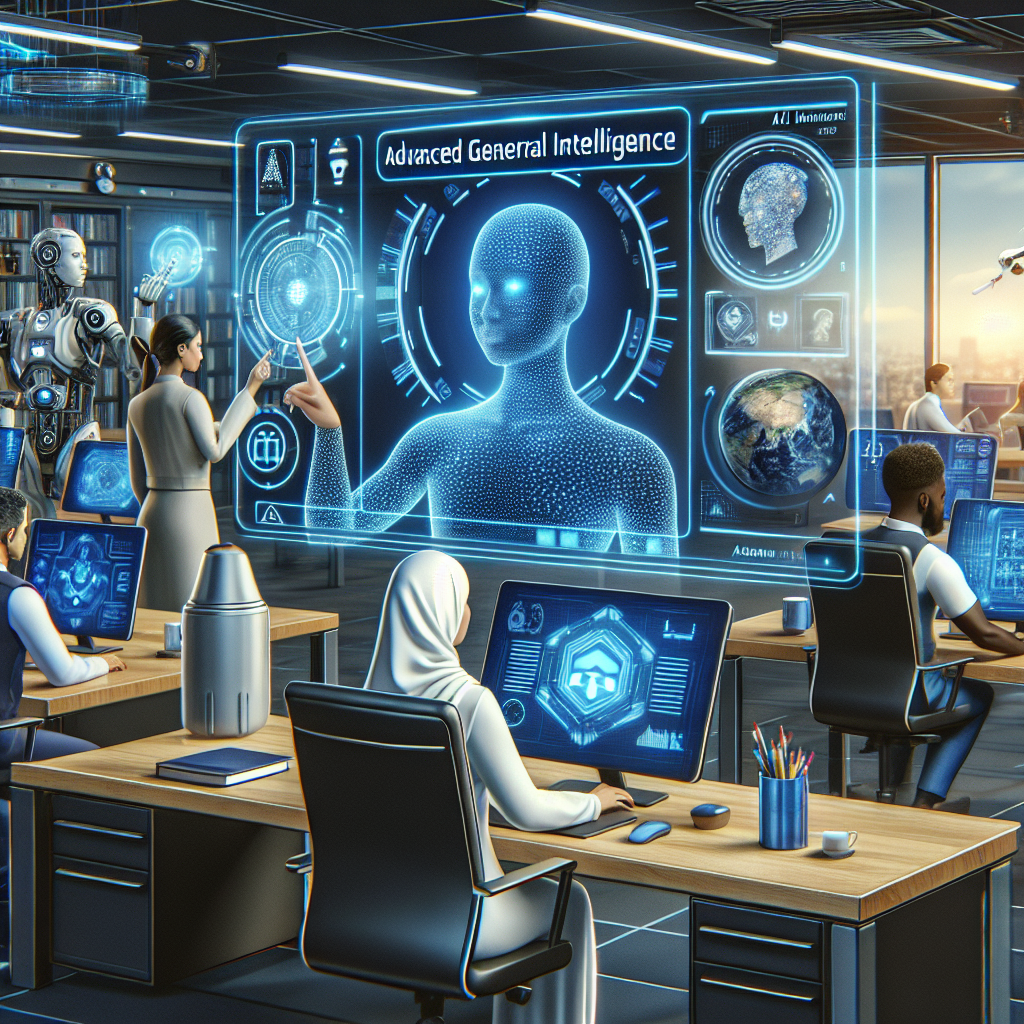Exploring the Impact of AGI on the Future of Work
Artificial General Intelligence (AGI) is a type of artificial intelligence that is capable of performing any intellectual task that a human can do. Unlike narrow AI, which is designed to perform specific tasks, AGI has the potential to revolutionize many aspects of society, including the way we work.
As AGI technology continues to advance, many experts believe that it will have a profound impact on the future of work. In this article, we will explore the potential implications of AGI on the workplace and discuss how it may shape the future of work.
AGI and Automation
One of the most significant impacts of AGI on the future of work is automation. AGI has the potential to automate a wide range of tasks that are currently performed by humans, from simple data entry and analysis to complex decision-making processes. This could lead to significant changes in the job market, with some jobs becoming obsolete while new opportunities emerge in fields related to AGI development and maintenance.
Automation has already had a significant impact on the workforce, with many routine and repetitive tasks being automated through the use of AI and robotics. However, AGI has the potential to automate a much broader range of tasks, including those that require creativity, problem-solving skills, and emotional intelligence. This could lead to a major shift in the types of skills that are in demand in the labor market.
Impact on Job Displacement
One of the primary concerns about the impact of AGI on the future of work is the potential for job displacement. As AGI technology advances, many jobs that are currently performed by humans may be automated, leading to widespread job loss in certain industries. This could have a significant impact on the economy and society as a whole, as workers are displaced and struggle to find new employment opportunities.
However, some experts believe that the impact of AGI on job displacement may be overstated. While it is true that some jobs will be automated, new opportunities may also emerge in fields related to AGI development and maintenance. In addition, the increased efficiency and productivity that AGI can bring may create new jobs in other industries, leading to a more dynamic and diverse job market.
Impact on Skills and Training
The rise of AGI is also likely to have a significant impact on the skills that are in demand in the labor market. As automation becomes more prevalent, workers will need to adapt and develop new skills to remain competitive in the workforce. This may require a shift in education and training programs to focus on skills that are less easily automated, such as critical thinking, creativity, and emotional intelligence.
In addition, the development of AGI technology itself will create a demand for workers with specialized skills in AI, machine learning, and data science. This could lead to new opportunities for workers who are able to acquire these skills and adapt to the changing demands of the job market.
Impact on Workforce Dynamics
The impact of AGI on the future of work is not limited to job displacement and skills training. It is also likely to have a significant impact on the way we work and the dynamics of the workforce. As automation becomes more prevalent, the nature of work may shift towards more flexible and remote working arrangements, as workers are able to perform their tasks from anywhere in the world.
This could lead to a more decentralized workforce, with workers collaborating and communicating virtually rather than in traditional office settings. It may also lead to changes in the way that organizations are structured, with a greater emphasis on project-based work and cross-functional teams. This could create new opportunities for workers to collaborate and innovate in ways that were not possible before.
FAQs
Q: Will AGI replace all human workers in the future?
A: While AGI has the potential to automate many tasks currently performed by humans, it is unlikely to replace all human workers in the future. New opportunities will emerge in fields related to AGI development and maintenance, and workers will need to adapt and develop new skills to remain competitive in the workforce.
Q: How can workers prepare for the impact of AGI on the future of work?
A: Workers can prepare for the impact of AGI on the future of work by acquiring new skills that are less easily automated, such as critical thinking, creativity, and emotional intelligence. Workers can also consider pursuing education and training programs in fields related to AI, machine learning, and data science to take advantage of new opportunities in the job market.
Q: What are the potential benefits of AGI on the future of work?
A: AGI has the potential to increase efficiency and productivity in the workforce, leading to new opportunities for workers to collaborate and innovate. AGI may also lead to new job opportunities in fields related to AGI development and maintenance, creating a more dynamic and diverse job market.
In conclusion, the impact of AGI on the future of work is likely to be significant and wide-ranging. While there are concerns about job displacement and skills training, there are also opportunities for workers to adapt and thrive in a changing job market. By preparing for the impact of AGI and acquiring new skills, workers can position themselves to take advantage of the new opportunities that AGI technology may bring.

